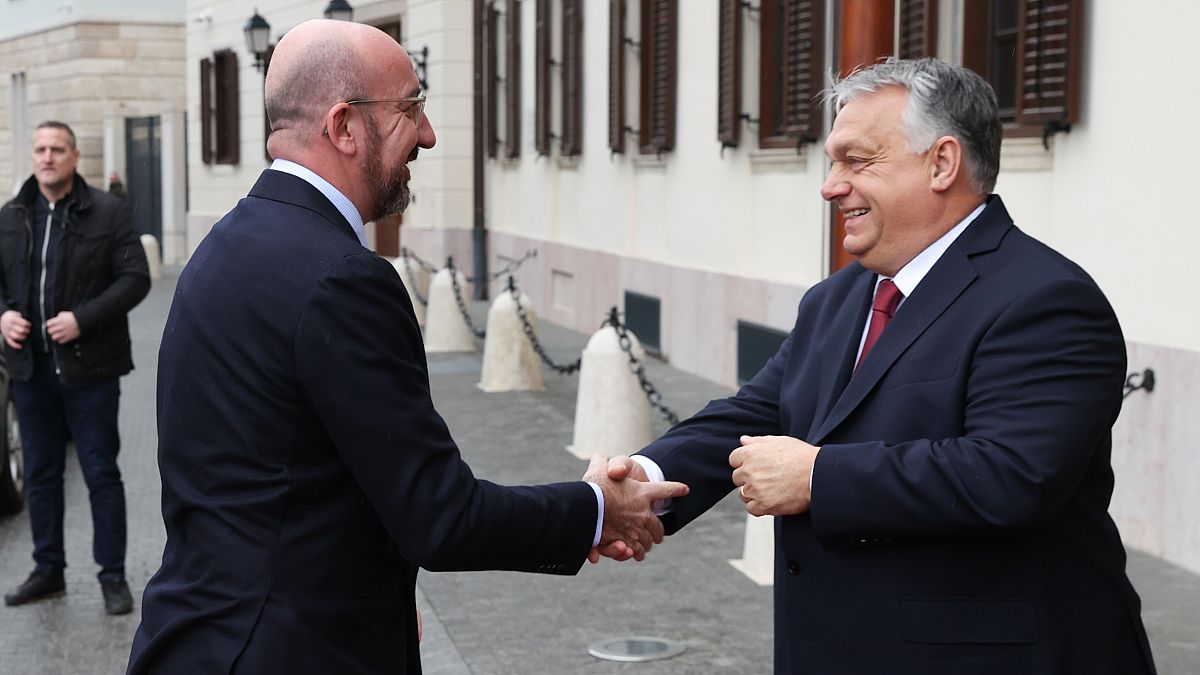Brussels efforts to coax back wayward members like Poland and Hungary are far from foolproof, the budget watchdog said.
A deal to offer Hungarian Prime Minister Viktor Orbán EU funds as part of a deal over support for Ukraine was slammed by the bloc’s budget watchdog in a report released today (22 February).
Brussels should enforce the rule of law based on sound analysis, not political horse-trading, the European Court of Auditors (ECA) said.
The European Commission has long had significant concerns over judicial independence in Poland and Hungary, but new rules it has introduced are far from watertight and prone to box-ticking, the report said.
“The rule of law is one of the fundamental values of the EU,” ECA member Annemie Turtelboom told reporters, adding that the “situation in some member states has clearly deteriorated" over recent decades.
“New safeguards are really a commendable step forward” from previous lumbering procedures, but “there are chinks in the armour”, Turtelboom said, calling for greater transparency and solid evidence.
Turtelboom cited last December’s European Council meeting in which Hungarian leader Viktor Orbán apparently agreed to relinquish his veto on funding for Ukraine in exchange for €10bn of EU cash.
“Rule of law related decisions must be grounded in technical and legal analysis, however political considerations may ultimately play a major role,” Turtelboom said. “We saw this happening on 13 December.”
“We cannot afford a box-ticking exercise that only embellishes the situation on paper,” she added, noting that Hungary’s new Integrity Authority, whose creation was a condition for the release of funds, was no guarantee of sound spending – not least as Budapest could disband it with few consequences.
Concerned over breaches to the rule of law in Hungary and Poland, Brussels has withheld funds worth €22bn and €134bn respectively, the ECA found.
But despite the eye-catching figures, “the immediate impact is actually quite limited,” Turtelboom said, as the law applies only to future financing, and does not impact farm subsidies.
“One third of the European budget, the Common Agricultural Policy, is at this moment not affected by these measures,” she said. “Whether it should – that's a political decision, up to the commission, the parliament, and the council to decide.”
In a statement sent to Euronews, a commission spokesperson denied there’d been blackmail by Hungary in relation to the December decision.
“We are applying the rule of law,” the spokesperson said, adding that funds had been unblocked as Hungary fulfilled legal conditions.
“The commission disagrees with the ECA’s description that this is a ‘box-ticking’ exercise,” the spokesperson said. “For all remedial measures, the Commission monitors their concrete application and effectiveness.”
Two weeks ago, the commission issued legal action against Orbán’s government for its “sovereignty law”, which empowers the Hungarian state and secret service to probe any group seeking to influence domestic politics.
The Hungarian government responded that Brussels was trying to protect Hungarian-born billionaire George Soros.
On Tuesday, Poland – now under the more Brussels-friendly rule of Prime Minster Donald Tusk – presented a series of bills to bring it out of the EU sin bin via judicial reforms.
